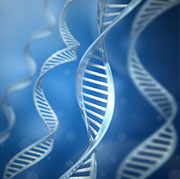
TUESDAY, March 11, 2014 (HealthDay News) — Commercially available tests can analyze your genetic profile and try to predict your risk of a host of diseases. But a new study suggests they aren’t ready for prime time.
The technology, known as whole-genome sequencing, allows scientists to “map” the information encoded in most of the billions of building blocks that make up a person’s DNA.
So far, whole-genome sequencing has been used mainly in research. But the hope is that the technology will help fuel a new era of “personalized medicine” — where doctors will be able to identify patients with gene variants that raise their risk of certain diseases.
In the past few years, the cost of whole-genome sequencing has fallen to the point where it could soon be feasible to use it in everyday health care, said Dr. Frederick Dewey, of Stanford University, the lead researcher on the new study.
But based on his team’s findings, Dewey said, a lot more work is needed before that idea becomes reality.
The study, reported in the March 12 issue of the Journal of the American Medical Association, found that sequencing a whole genome remains a fairly daunting task.
And although the commercially available tests are good, they aren’t yet reliable enough for routine patient care, Dewey said.
For the study, Dewey’s team recruited 12 healthy adults who volunteered a blood sample for whole-genome sequencing.
Overall, testing showed that each patient had between 2 million and 3 million unique variations in their DNA. The researchers then used a software program they had developed to whittle down that sea of information to around 100 genetic variations per person that were deemed worthy of more investigation.
Next, they analyzed those variations in an old-fashioned way — by “actually sitting down,” Dewey said, and sifting through the medical literature and available genetic databases to see which gene variants might be relevant to people’s health.
That process took about an hour per variant, at an estimated cost of $17,000 per patient when all was said and done.
And what came from the effort? The researchers ended up with about two to six DNA variations for each person that they considered potentially important.
In the end, only one study participant had a test result that needed clear action — but it was a big discovery. The woman carried a mutation in the BRCA1 gene, which carries a high risk of breast and ovarian cancers. She ultimately chose to have her ovaries removed and start more intensive breast cancer screening.
“The promise of this [technology] is great, and our study highlights some of the opportunities,” Dewey said. “You can identify clinically meaningful disease risks.”
But, he added, the study also pinpoints the limitations and challenges of whole-genome sequencing as it stands now.
“We have to be honest about what we can reasonably expect this technology to do,” Dewey said.
In particular, his team found that two commercially available whole-genome tests are not yet accurate enough to rely on for routine use. The tests were not able to reliably detect all variations in 7 percent to 16 percent of 56 genes that are known to be associated with disease risks.
“There’s still a gap between where we are and what would be clinically acceptable,” Dewey said.
Even if the sequencing technology were perfect, that would still leave the question of what to do with all the genetic information, said Dr. William Feero, of Maine Dartmouth Family Medicine Residency, in Augusta.
“Trying to determine what’s meaningful is quite challenging,” said Feero, who wrote an editorial published with the study.
Much of what’s known about the genetic underpinnings of disease is confined to what’s called the “exome” — the genes that make the proteins that run your body. But the exome accounts for only about 1 percent of the entire genome. The vast sea of genetic material beyond that was once thought of as “junk DNA,” Feero said.
Scientists have known for a while that’s not true — that DNA has a number of important jobs, including regulating the protein-making genes of the exome. But Feero and Dewey both said much more remains to be learned about DNA variations and disease risk.
Even when there is strong evidence linking a gene variant to health consequences, it might not be clear what to do about it. With the BRCA1 mutation, the risks are clear and women have options for reducing those risks, Feero said.
“For a lot of [DNA] variations, there’s little information on what to do about it,” he said.
One of the fears about widespread genetic testing is that doctors will be spurred to order a lot of expensive, possibly unnecessary follow-up tests or treatments. In another part of their study, Dewey and his colleagues gave the study participants’ results to five doctors to see what they would recommend as a follow-up.
Overall, they recommended one to three tests or referrals for each participant, at a cost of about $350 to $800. “That’s reassuring, to some degree,” Dewey said, since his team actually expected a much higher price tag.
The caveat is that the results are based on five doctors — two of whom were medical geneticists. No one knows, Feero said, what the average doctor in the real world would do.
Still, both he and Dewey said whole-genome sequencing holds great promise. Feero predicted that it will at first be used in limited circumstances — such as helping to diagnose a patient with a chronic condition that is eluding traditional diagnostic methods.
Meanwhile, prices continue to fall. Biotech firm Illumina, for example, advertises its current genome-sequencing services at anywhere from $5,000 to $17,500, depending on the specifics. But in January, the company unveiled a new technology it says will bring the cost of sequencing a whole genome to around $1,000.
More information
The U.S. National Human Genome Research Institute has more on genetics research.
Copyright © 2026 HealthDay. All rights reserved.

